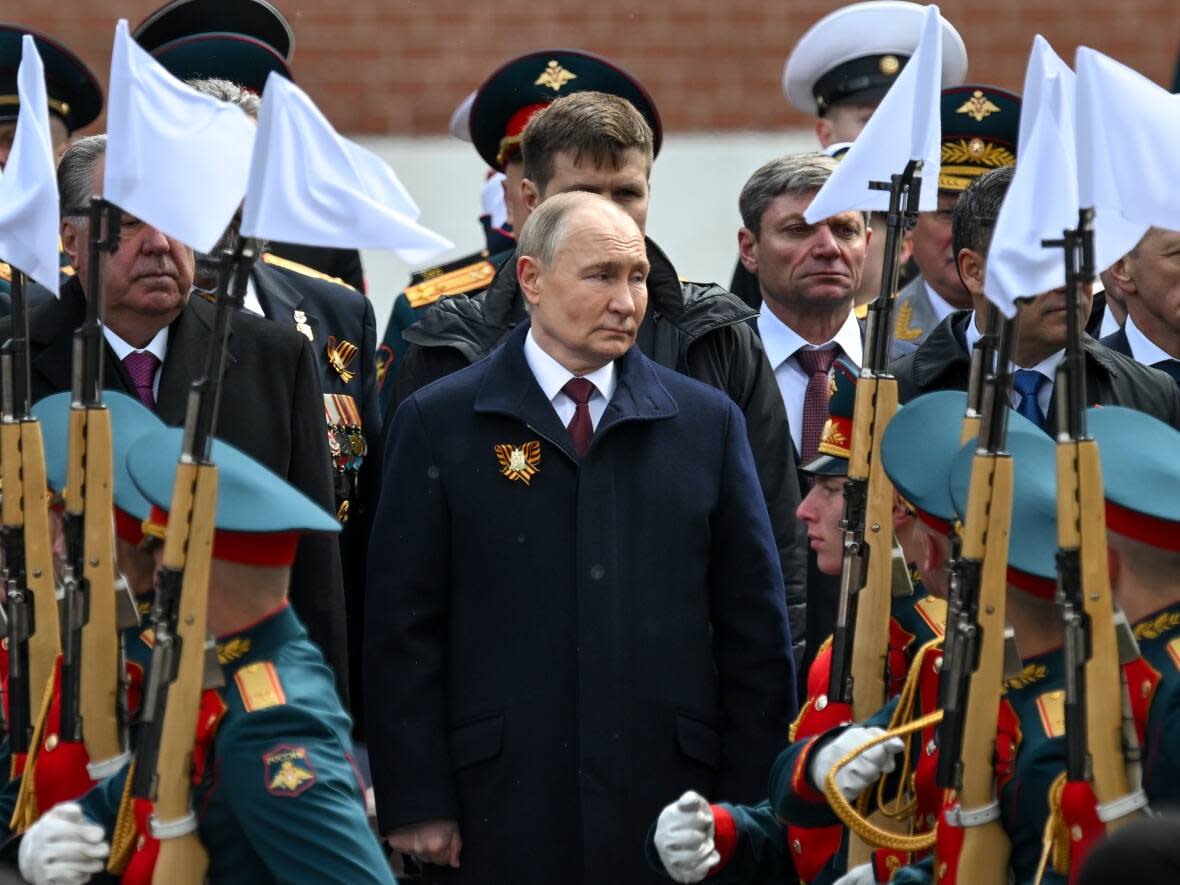Canada's relations with Russia have slid to a post-Soviet low, ambassador says

- Oops!Something went wrong.Please try again later.
Canada's top envoy in Moscow says relations with post-Soviet Russia are likely as bad as they've ever been, as the war in Ukraine grinds on and Vladimir Putin enters his fifth term as president.
In her first media interview as ambassador to Russia, which aired Saturday on CBC Radio's The House, Sarah Taylor said the combination of the war in Ukraine and Russia's internal crackdown on dissent had led to a rapid and dramatic deterioration in the relationship.
"I would say it's certainly a relationship that is extremely poor at the moment, probably the poorest it's ever been" since the fall of the Soviet Union, Taylor told host Catherine Cullen.
The invasion of Ukraine, Taylor said, is the main factor. She also expressed concern about Russian domestic issues, including what she called a "crackdown on democracy, human rights [and] civil society."
The conflict in Ukraine has stagnated into a war of attrition across a relatively stable front, though Ukraine has expressed concerns about depleted military materiel and the urgent need for Western aid.
Ukraine has said a months-long delay in an aid package from the United States put it at a tactical disadvantage. Russia launched a new ground attack in the country's east on Friday.
Putin used the occasion of his inauguration to a fifth presidential term in Russia to rail against the West's support for embattled Ukraine. The United States announced a new $400 million aid package for Ukraine on Friday.
"The choice is theirs: do they intend to continue trying to restrain the development of Russia, continue the policy of aggression, incessant pressure on our country for years, or look for a path to cooperation and peace?" Putin said in his speech Tuesday.
WATCH | Putin's fifth term as Russian president begins
Taylor did not attend Putin's inauguration — a consequence of what she described as Canada's policy of "limited engagement" with Russia. The policy entails making sure that the basic operations of the embassy continue — including consular issues, diplomatic communications and information gatherings — without meeting with Russian officials on other issues.
"Some people think of embassies and diplomatic relations as some sort of gift that we give to friends. That's a misunderstanding. Embassies and diplomatic relations are tools that we use to promote and protect Canada's interests abroad," she said.
The embassy's interactions with Russian counterparts are limited, she said.
"They consider us to be an unfriendly country, as they put it," she said.
WATCH | Is there a problem with international sanctions on Russia?
Canada has sanctioned thousands of Russian individuals and entities in response to the war in Ukraine — though it's not clear whether broader international sanctions are having a significant effect on Russia's economy, which is expected to grow rapidly this year. High oil prices in particular have allowed the Russian economy to weather its increasing isolation from the global marketplace.
Taylor defended Canada's sanctions regime in her interview Saturday.
'I think it's important to recognize that sanctions are never an instant tool. They're not a quick on, quick off," she said.
"I think we need a degree of patience. We keep saying we're in this for as long as it takes. We need to continue holding the course on sanctions — but I think, in the medium term especially, they will have quite a significant impact on the Russian economy."
Looking ahead, Taylor said Russia is unlikely to focus strongly on the Arctic right now, given the attention it needs to pay to Ukraine.
WATCH | Ukraine needs more aid from the West, PM says
"The Arctic is more perhaps a medium and longer term issue for them," she said.
She also discussed a recent announcement by Putin that Russia would practice nuclear weapons deployments. Putin has brought up the possibility of nuclear warfare occasionally over the course of the war.
"Russia has made quite a number of threats which it has not followed through on. So I think I hope very much that this may fall in this category," Taylor said.

